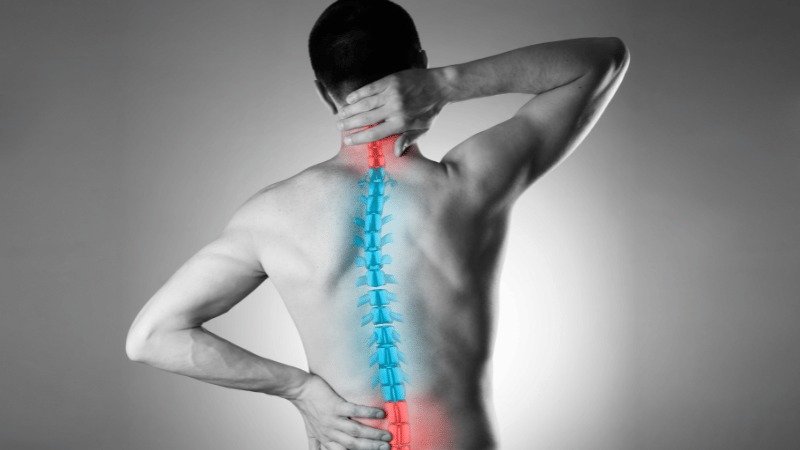Dizziness is something that a lot of people deal with. Even though we’ve figured out what causes dizziness, how to find out what’s wrong, and how to treat it, there are still tons of people who feel dizzy without an obvious reason. They might not have issues with their inner ear balance system, their heart and blood vessels, or any injury to their brain. They go to many doctors, trying to figure it out, and can end up spending a lot of money on brain scans and other tests without getting a clear answer.
Healthcare providers struggle to give patients answers about vertigo. One thing that is well established is that vertigo commonly begins after a person has experienced trauma to the head or neck. This may have occurred due to a car accident, sports injury, slip and fall, or another type of accident.
If you have ever moved your head suddenly and found the room spinning, then you have experienced vertigo. It is a very common condition that results from the false sensation of movement caused by either a problem in the inner ear (common) or the central nervous system (less common). When vertigo strikes suddenly, it can result in nausea or even a fall.
Sometimes, the problem comes from issues with the ligaments or muscles in the neck, right where your skull sits on top. This can mess with your body’s sense of where it is in space, leading to a mix-up in the signals sent to your brain, and causing a type of dizziness known as cervicogenic dizziness.
When an injury occurs to the head or neck, a misalignment of the upper cervical spine often results. This part of the body is vital when it comes to balance and spatial orientation. In fact, a neck misalignment can affect blood flow to the brain and also the ears, making it the underlying cause in cases of vertigo that spring from both the ears and the central nervous system.
Common Signs and Symptoms
Cervical dizziness, or Vertigo doesn’t look the same for everyone. You might feel
- Dizziness
- As if you’re floating on a boat
- A light-headedness
- Clumsiness, or unsteadiness
- Difficulty keeping posture upright
- Eye troubles, where your eyes move weirdly or get tired easily.
- Feeling sick to your stomach or nauseous.
- Neck stiffness or pain
- Persistent headaches
Unlike the dizziness that makes you feel as if the world’s doing donuts around you, cervical vertigo is more about feeling off-balance or like you’re not quite solidly on the ground. It’s can be weird, feeling drunk sometimes.
3 Potential Causes of Vertigo Frequently Seen
- Vestibular Migraines – While this is considered a migraine, a vestibular migraine affects the vestibular system which controls balance and orientation. Vertigo may come on before the headache and last after the headache is gone. Other symptoms include sensitivity to light and sound.
- Neurological Conditions – Vertigo is a symptom of various neurological conditions. Other symptoms include, but not limited to, double vision, numbness and weakness in the facial muscles, limb control problems, and disequilibrium.
- Structural Conditions – When the head is no longer upright on the upper cervical spine due to the misalignment, it changes the proprioception input to our brain, which can be aggravated by the presence of head tilt. Upper cervical misalignment can alter the sensory input and interfere with head and eye coordination.
A Natural Vertigo Treatment Alternative
Most causes of vertigo are far less serious. Still, some with vertigo feel the condition is permanent and they now just have to deal with it the best they can. That can be a tough realization to come to. It also may not be an accurate one, so don’t give up hope! At NUCCA Wellness Clinic of Chicago, we have seen much success in dealing with vertigo through upper cervical chiropractic care.
The NUCCA technique is a gentle form of chiropractic that works under the radar, as opposed to general chiropractic which involves popping and twisting of the spine. Modern technology plays a key role in identifying very specific misalignments in the C1 and C2 vertebrae. Even a small misalignment can disrupt proper communication between the brain and body. Correcting the misalignment may rapidly decrease vertigo attacks.
NUCCA Chiropractic for Vertigo
NUCCA chiropractic focuses specifically on the C1 and C2 vertebrae. After an examination and diagnostic imaging is used to identify the specific location and degree of misalignments, gentle adjustments are customized to the patient’s needs.
When a misalignment is corrected, a patient may see significant improvement in symptoms such as vertigo. For some, the condition may resolve completely. In fact, in a case study involving 300 people, 97% of patients saw a dramatic reduction in symptoms. The average improvement was greater than 90%.
If you are suffering from vertigo, especially if you have ever experienced head or neck trauma, come and see us at NUCCA Wellness Clinic of Chicago to learn more about what upper cervical chiropractic care may be able to do for you.
You can call us at (224) 676-1920 or fill out a contact form to set up an appointment at our Chicago, IL location.
References:
Burcon M. Cervical Specific Protocol and Results for 300 Meniere’s Patients, 6th International Symposium on Meniere’s Disease. Nov 2010.
Sung YH. Upper cervical spine dysfunction and dizziness. J Exerc Rehabil. 2020 Oct 27;16(5):385-391. doi: 10.12965/jer.2040612.306. PMID: 33178639; PMCID: PMC7609854.







